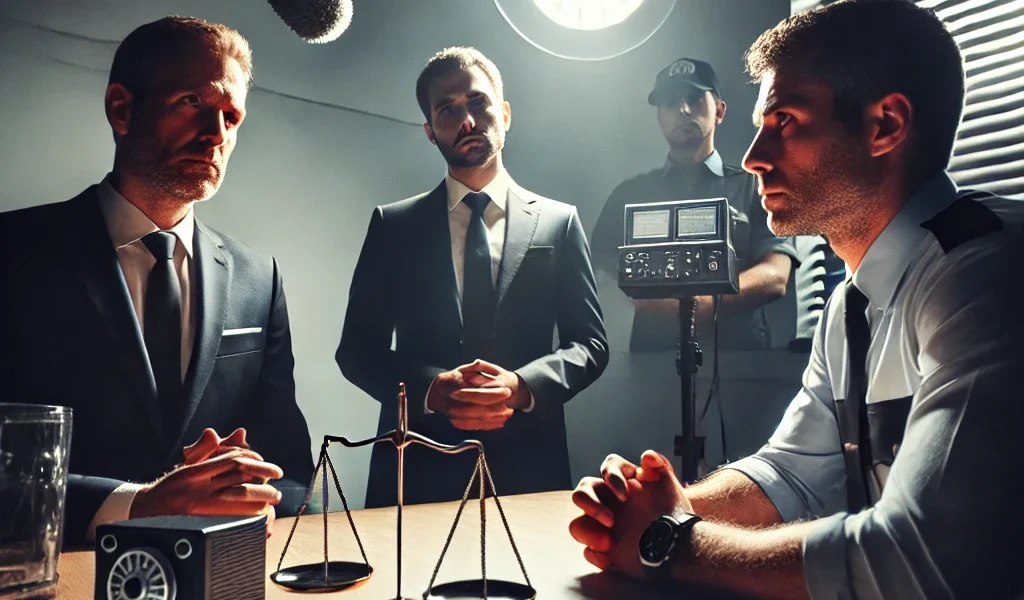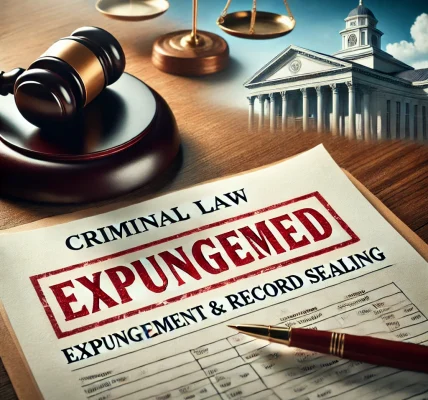Introduction
Interacting with law enforcement can be intimidating, especially during a police interrogation. Whether you are a suspect, witness, or simply called in for questioning, knowing your legal rights is crucial to protecting yourself. This guide will help you understand what to expect during an interrogation, your legal rights, and the best ways to protect yourself from self-incrimination or coercion.
1. What is a Police Interrogation?
A police interrogation is a formal or informal questioning session conducted by law enforcement officers to obtain information, confessions, or evidence related to a crime. Interrogations can take place at a police station, on the street, or even at your home or workplace.
Types of Police Interrogations
- Custodial Interrogation – Occurs after a person is taken into custody. Miranda Rights must be read before questioning.
- Non-Custodial Interrogation – Takes place without formal arrest, but the person may still feel pressured to answer questions.
- Field Questioning – When police ask questions at a crime scene or during routine stops.
Understanding the nature of the interrogation helps determine your rights and how to respond appropriately.
2. Your Legal Rights During Police Interrogations
a) The Right to Remain Silent
One of the most important rights during an interrogation is the right to remain silent. Under the Fifth Amendment of the U.S. Constitution, you cannot be forced to provide self-incriminating statements.
How to Exercise This Right:
- Politely state: “I am invoking my right to remain silent.”
- Avoid answering any further questions until you have legal representation.
b) The Right to Legal Representation
The Sixth Amendment gives you the right to an attorney before and during questioning.
How to Invoke This Right:
- Clearly state: “I want to speak to a lawyer before answering any questions.”
- If you cannot afford an attorney, request a public defender.
- Do not engage in small talk or attempt to explain your side without a lawyer.
c) The Right to Be Informed of Your Rights (Miranda Rights)
If you are in police custody, officers must read your Miranda Rights, which include:
- The right to remain silent.
- Anything you say can be used against you in court.
- The right to an attorney.
- If you cannot afford an attorney, one will be provided.
If law enforcement fails to Mirandize you before questioning in custody, any statements you make may be inadmissible in court.
d) The Right to Avoid Coercion and Unlawful Tactics
Police officers cannot use force, threats, deception, or prolonged interrogations to extract confessions. If you feel pressured or threatened, state that you are uncomfortable and request a lawyer.
3. Common Police Interrogation Techniques & How to Handle Them
Law enforcement uses various techniques to extract confessions. Knowing these methods helps you protect yourself.
a) The Reid Technique
A widely used method involving psychological pressure and manipulation.
- Tactic: Officers act friendly to build trust and then apply pressure to obtain a confession.
- How to Handle It: Stay firm in your right to remain silent and request an attorney.
b) Good Cop, Bad Cop
One officer appears aggressive while another acts sympathetic to encourage cooperation.
- Tactic: The “good cop” may offer leniency if you confess.
- How to Handle It: Do not fall for this trick. Stick to your rights.
c) Lying About Evidence
Officers may falsely claim they have fingerprints, DNA, or witness statements linking you to a crime.
- How to Handle It: Do not be tricked. Ask for a lawyer and do not answer.
d) Prolonged Questioning
Interrogations can last hours, wearing you down mentally.
- How to Handle It: Politely refuse to answer without a lawyer and request a break if needed.
4. What to Do If You Are Being Interrogated
Before Answering Any Questions:
✅ Remain calm and respectful. ✅ Politely ask if you are free to leave. If yes, walk away. ✅ If under arrest, ask for an attorney immediately. ✅ Do not lie to the police—lying can lead to charges. ✅ Do not guess or speculate in your answers.
During the Interrogation:
🚫 Avoid signing anything without consulting a lawyer. 🚫 Do not let officers intimidate or manipulate you into confessing. 🚫 Stay consistent—changing statements can make you look guilty.
If You Feel Coerced or Threatened:
- Request that the interrogation be recorded.
- If denied access to a lawyer, remain silent.
- If mistreated, report it to a legal professional later.
5. What Happens If You Invoke Your Rights?
Many people fear that asserting their rights makes them look guilty. However, exercising your rights is not an admission of guilt; it is a smart legal move.
After Invoking Your Rights:
- Police must immediately stop questioning until an attorney is present.
- Remaining silent cannot be used against you in court.
- If police continue questioning, their conduct may be considered unlawful, and your statements may become inadmissible in court.
6. The Role of a Criminal Defense Attorney in Interrogations
Having legal representation significantly impacts how an interrogation unfolds. A criminal defense attorney can:
- Prevent self-incrimination.
- Identify unlawful tactics used by law enforcement.
- Ensure fair treatment throughout the legal process.
- Guide you on how to respond (or not respond) to questioning.
If you are arrested or under investigation, seeking legal counsel is the best way to protect yourself.
7. Conclusion
Understanding your rights during police interrogations is essential to safeguarding yourself against self-incrimination and coercion. If questioned by law enforcement:
- Remain silent until you consult a lawyer.
- Be aware of interrogation tactics and how to resist them.
- Never waive your rights under pressure.
- Seek legal representation as soon as possible.




